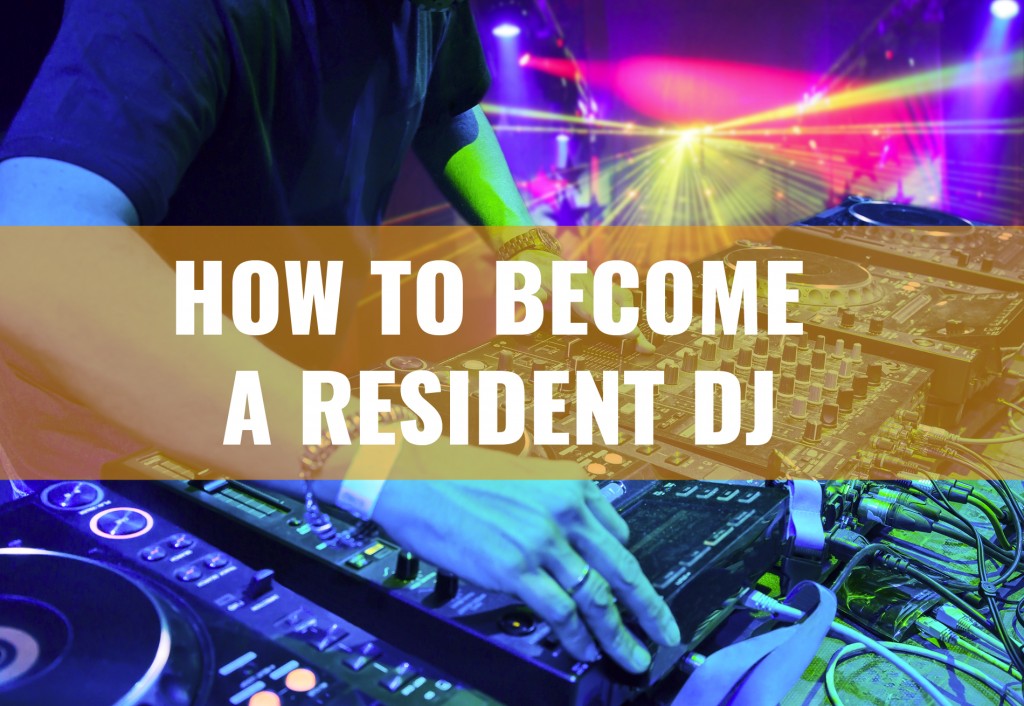HOW TO BECOME A RESIDENT DJ
As a new DJ, a residency can help you develop your craft and teach you invaluable skills like reading a crowd and understanding how to construct and program sets that are relevant to a wide variety of party goers. Being a resident DJ can also potentially provide a regular income, which is something that can be quite rare in the early days of your DJ career.
We want to give the best advice possible on how to get your foot in the door and keep it there, starting with some of the most common questions we get asked:
– How do I get a residency?
– Should I take requests?
– What’s the difference between a warm up and peak time set?
So we decided to ask the professionals… The resident DJ’s.
You will find residents, week in, week out, up and down the country (and all around the globe) setting the vibe for club nights, bars, pubs, restaurants and even in shops and at fashion shows. They are the backbone of the clubbing industry. Everyone we spoke too worked extremely hard on developing their own style and skill set. This article is aimed at the DJ who is club ready. They have their music, their skill level for mixing and style on point! If you are just starting out learning how to mix, check this article we published late last year How to be a DJ. Looking to improve your skills then check out our bespoke DJ courses.
GETTING YOUR FIRST RESIDENCY AND KEEPING IT
We talked to over 30 professional resident DJ’s all over the world. We asked them how did they get their first residency and from London to Vancouver, Dublin to Dubai, the answer is almost always the same… Being at the right place at the right time.
Now this may sound a little ambiguous, but if we dig a little deeper you can see that putting yourself in the right place is not as hard as you may think.
Sam Barnes, professionally known as ZeroZero, who holds down residencies in the UK & Netherlands says…
Basically, just by being involved and making sure you support the local scene. Send your music and mixes to promoters.
Bobby Christie echoes this right place, right time sentiment in what he had to say. Going by the DJ name Bobbytron, Robert holds down residencies at clubs across the Midlands in the UK.
I moved to Nottingham and met a few people there whilst I was a Doorman. After playing a couple of small gigs I got asked to join a group of DJ’s that were putting on a regular night at Gatecrasher in Nottingham. After a few months the night folded but I was asked to stay on at Gatecrasher and became their in-house resident.
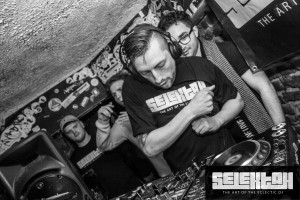
Another way to make sure you are in the right place is starting your own night. This is particularly good if you play a specific style of music, or there isn’t a club night in your local area that plays the style of music you and your friends want to hear. DJ Believe AKA George Greenhill, who has been a resident at Coalition for the past 9 years in Edinburgh, Scotland did exactly this.
My first residency came from starting my own nights. I started doing two nights, one in a local bar and one in the local art school. Both folded after a year or so, but from those I got three residencies.
ON THE RISE DJ ACADEMY TIP:
Starting your own night can be a great way to expand your network and build a fan base. Once you’ve started your night and have been running it for a few months, do some research into other club nights and promoters around the country (or even around Europe or the world) that have a similar music policy to yours. Contact the promoters and see if they are up for resident swaps and cross brand your nights.
When asked what the benefits are of doing resident swaps with other nights/promoters, Big Nick D who is a resident at the Bank Of Switches in London said…
The immediate benefits of a resident swap would be more exposure for you and your night. Also you’d gain essential experience playing in a different setting to a different crowd. If you’re new to the game, it’s always good to get onto a strange booth with a different set up, it’s all about gaining experience. In the longer term it’s a great way meet other DJs & potentially form new connections & friends. It’s a win win situation.
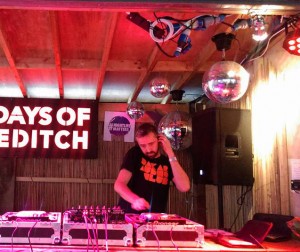
So, as we see from talking to the professionals, getting your first residency is about being pro-active and making it happen for yourself. Be in the right place, be there at the right time (whenever club nights are happening in your area) and get to know people involved in the local scene. Support your local scene. Try not to be too pushy and potentially scare promoters away. Just be yourself and let them know who you are and what you do.
So once you have the residency, how do you go about keeping it? The image of the DJ can sometimes be a bit of a rock star or a diva. In real life, this is about as far from the truth as it gets when it comes to holding down a residency.
Alexandra Donald who has been at Whelans in Dublin for 5 years knows all about how to treat the club she works for.
It’s vital to have a good working relationship with the management at the venue. DJing is my fulltime job, if Whelan’s ring me in a panic because another DJ has cancelled or hasn’t shown up, I’ll cancel my plans so I can go in and help them out. They know I’m reliable and that my job comes before my social life. It’s also important to be polite and nice to everyone who works in the bar/club, from the floor staff to the bar manager. You never know when that person could be working in another bar and remember you when they’re looking for DJs
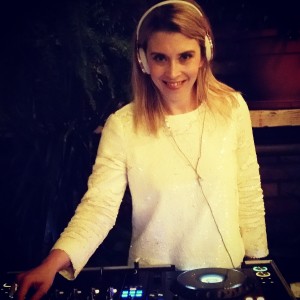
When asked about his opinion on how important it is to build a good relationship with venues, Alex Sessions, who is a resident at Soho House in London (amongst his many others) simply said…
Its very important! If you are easy to work with you can bet they will prefer you over a d*ck head any day!
So, what can you do that turns the promoter off you once you got your foot in the door. Yes, playing music that doesn’t suit the venue, night or time-slot is a big one. But we will talk a bit more about that later. One major point is drinking. Yes, it can be good to have a drink when you get to the venue (if you’re not driving that is) just to loosen up and get you in the mood, but don’t over do it.
Andy H, who is a resident at the Legendary Tuesday club in Sheffield along with the Outlook Festival has this to say…
Having a beer with the other DJs in the dressing room is a great way to network and build relationships. In most big venues the house manager, security and promoter will not be drinking so be aware they are paying you to work. Drinking heavily before going on stage doesn’t look great when they are completely sober. Taking five mates back stage and letting them raid the drinks fridge also isn’t a great look either, especially when the promoter is paying for drinks out of their own pocket
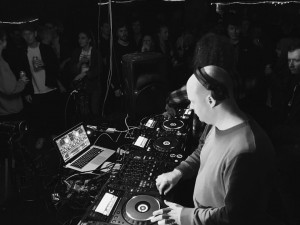
As you can see, one of the things most commonly associated with club life, drinking (and any other more illicit substances), can also be something that seriously affects your chances at keeping a residency. And as we have already seen, a residency is something that can really help you develop as a DJ and be a doorway into a career. As with most things in life, drinking whilst DJ’ing should be done in moderation (or not at all).
So whats next?… Music.
RESIDENT DJS – SHOULD YOU TAKE REQUESTS?
BEING A WARM UP DJ, READING THE CROWD AND THE DREADED QUESTION
One of the things we get asked constantly by students is ‘Should I take requests?’. There is a school of thought that says ‘The DJ is not a jukebox’ and there’s another that says ‘The DJ is the entertainment for the night and should please the crowd’. In our opinion, both are correct in their own way. If the DJ is booked to play a Ragga Jungle set and a punter asks for the Venga Boys… I think we all know what the answer would (and should) be….
But, for the most part, in the real world of residents at clubs and bars all over the world, those lines are a little more blurred.
Jason Ard aka Old Flame, a resident at The Crazy Bull in Georgia, USA raises an interesting point.
I do take requests at a residency or private gig. It can be very annoying, but on the flip side, it can also help take the vibe in a different direction with a good request
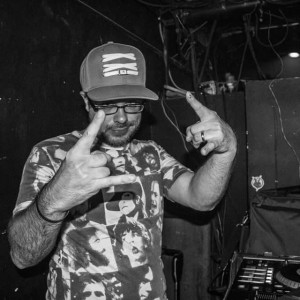
So, rather than seeing requests as a purely negative experience for the DJ, you can put some faith in the crowd to know what they want to listen to and that they understand the vibe of the night! A request can be a welcome interaction with your crowd.
Obviously, this isn’t always the way…
I was playing at a techno event last summer and a woman asked if I had any Elvis
–Matt Pook, Resident at Berlin Brighton
Rather than being a juke box you can be something more like a musical curator that takes requests but only plays the ones that are right for the vibe.
This comes down to having a large and varied library of music and the ability to be able to access it efficiently whilst playing.
ON THE RISE DJ ACADEMY TIP:
Preparation is key for any gig and none more so when you are holding down a residency and need a wide variety of styles. Being well organised and having access to different genres easily means you can stay focused on the crowd and your creativeness. Check out our guide on organising your music. You can also book a session with us direct on our Digital Management course.
When the club you are resident at books a headline DJ to play the night, the likelihood is you will be asked to fill the warm up DJ slot. Many professional DJ’s and club industry insiders consider being a good warm up DJ an art form unto itself. This can also be when you start to form the skill of reading a crowd.
Andy H again speaks from experience as a seasoned resident at an event that books some of the biggest DJ’s in the world and makes some very valid points.
Good warm up DJs are hard to find. Not playing all the headliners own tracks or just rinsing through the bangers but still being able to warm up a crowd properly gives the headliner a perfect platform to start their set. The people who have bought tickets for the event come expecting a certain style of music that the headliner is known for. Being able to take the crowd from doors opening to a full dancefloor while not playing any of the headliners tracks is a skill in itself. It is important not to becoming a clone or “poormans” version of the headliner too. Holding back to make the headliner shine rather than going in all guns blazing ultimately makes it a better all round event, plus means you will be invited back.
When you are preparing for a warm up set, it’s a good idea to do the due diligence and research what you are going to play and have an idea of the order. It’s very common in situations such as this to even program your entire set. There is nothing wrong with this at all in our opinion. But, what about the ability to make a decision on what you are going to play, based on the crowd at the venue on the night? This is where one of the most important skills a DJ can develop comes into play. Reading the crowd. We have all had amazing nights behind the turntables (or controller or laptop) just vibing off what the people on the dance floor are giving you. This is a skill that does not just happen over night. It comes with experience and practice.
‘Reading the crowd is my biggest asset, and it always grows with experience. I’m not technically as skilled as other DJ’s but I can read a crowd and know what they want before they do’ says Rob Lingo aka Mr. Lingo who has had residencies all over Bristol in the UK in some of its most famous venues such as the Thekla and Motion.
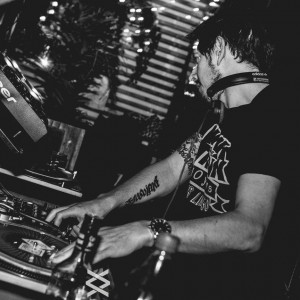
When asked how important it is to be able to read a crowd, Nitenoise who has residencies in various venues around the midlands in the UK said…
MASSIVELY! This is such an underestimated skill in new DJ’s. Keep your head up, watch what is going on. Notice what they like and don’t. Don’t be afraid to take a risk now and again with switching things up, if your eyes are open and it doesn’t work you can pull it back. If it does you could end up making a real impression.
As you can see, being able to read a crowd is one of the most important skills a DJ can have. This skill is especially important in the context of being a resident DJ at a club who could potentially be playing different styles to a completely different crowd of people every week. But how do you develop this skill. Like with anything in the world of DJ’ing… Practice. As Nitenoise says above, take risks, challenge yourself and see what works. If it doesn’t, simply draw for something else.
ON THE RISE DJ ACADEMY TIP
Another way to learn how to read a crowd is to watch how experienced DJ’s do it. Go to bars, clubs and events and stand in the crowd and listen and watch the DJ that’s playing. But also, watch the crowd and see how they react to them.
SUMMARY
To sum everything up, I think we have found that doing the job of a resident DJ is a lot like doing any other job. It requires a specific set of skills, maybe more so than headline DJ’ing (warm up and crowd reading for example). These skills are built with experience, time and practice. Being a resident DJ requires you to build relationships and keep them by acting professionally and responsibly.
But with all that said, when we asked the DJ’s we talked to if they had any other advise, nearly all of them said you have to have fun and enjoy yourself. Ultimately in any creative career, you have to love what you do… Even if that means playing the occasional track that isn’t exactly to your own personal taste.
Hopefully this article has shed some light on the world of resident DJ’s and what they do and how they got there and stayed there. On The Rise DJ Academy would like to thank all the DJ’s that took part. And especially those that gave us great quotes to use based on their personal experiences of doing the job. Alex Session, Alexandra Donald, Andy H, Bobbytron, DJ Believe, Final Conflict, Jeff Lingwood, Lingo, Mat Pook, Nitenoise, Old Flame, and Cakeboy
As always, we want to hear what you guys think as well. If you are now, or have been a resident DJ, please let us know if you have any hints, tips or wisdom to share.



